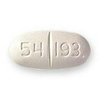BUY VIRAMUNE NOW!

INDICATIONS
This medication is used in the treatment of infection with the HIV virus (the virus that causes AIDS). It is used in combination with other HIV medications in selected patients. No cure exists for HIV infection, and the illnesses associated with your disease (infections, etc.) may continue. Because HIV can quickly become resistant to this medication if used alone, viramune must be used with at least 1 other anti-HIV medication. Your doctor may change your treatment plan if this medication stops working well.
INSTRUCTIONS
Take by mouth as directed. The usual dose is one 200 mg tablet daily for the first 14 days, then followed by one 200 mg tablet twice a day. Viramune is taken with at least one other medication (antiretroviral) for HIV. It is important to follow the dosing instructions carefully in order to minimize serious side effects, such as rash. If a rash develops in the first two weeks, the viramune dose is not increased until the rash is gone. If treatment is stopped for more than 7 days, then re-treatment should begin as directed by your doctor, usually with one 200 mg tablet daily for 14 days, then one 200 mg tablet twice a day. Read the Patient Information Leaflet available from your pharmacist. If you have any questions, consult your doctor or pharmacist.
STORAGE
Store at 25°C (77°F); excursions permitted to 15°C–30°C (59°F–86°F) [see USP Controlled Room Temperature]. Store in a safe place out of the reach of children.
MORE INFO:
Active Ingredient: Nevirapine
PRECAUTIONS::
This medication should not be used if you have certain medical conditions. Before using this medicine, consult your doctor or pharmacist if you have: severe liver disease. Tell your doctor your medical history, especially of: liver disease (including Hepatitis B or C infections), severe kidney disease, any allergies. This medication should be used only when clearly needed during pregnancy. Discuss the risks and benefits with your doctor.
This drug is excreted into breast milk. Because breast milk can transmit HIV, do not breast-feed. Viramune has infrequently caused severe (sometimes fatal) liver and skin reactions (e.g., Stevens-Johnson syndrome, allergic reaction), especially during the first 18 weeks of therapy. These reactions are most likely to occur during the first 6 weeks of therapy but can occur at any time while taking viramune.
If you develop a rash at any time while using this medication, or if you develop unusual fatigue, abdominal or stomach pain, dark urine, loss of appetite, or yellowing of the skin or eyes, seek immediate medical attention (liver function tests should also be done at this time). If you had a severe liver or skin reaction while on this drug in the past, you should not restart therapy with viramune again.
Important safety information:
Rarely, this drug may make some people drowsy. Do not drive, use machinery, or do any activity that requires alertness until you are sure you can perform such activities safely. Limit alcoholic beverages.
To decrease your risk of spreading HIV disease to others, always use an effective barrier method (latex or polyurethane condoms/dental dams) during all sexual activity. Consult your doctor or pharmacist for more details.
All medicines may cause side effects, but many people have no, or minor, side effects.
Check with your doctor if any of these most common side effects persist or become bothersome:
Tiredness, nausea, vomiting, or diarrhea may occur. Drowsiness may rarely occur. If any of these effects persist or worsen, tell your doctor or pharmacist promptly.
Remember that your doctor has prescribed this medication because he or she has judged that the benefit to you is greater than the risk of side effects. Many people using this medication do not have serious side effects.
Nevirapine can commonly cause a rash that is usually not serious. However, you may not be able to tell it apart from a rare rash that could be a sign of a severe reaction. Therefore, seek immediate medical attention if you develop any rash.
Changes in body fat may occur while you are taking this medication (such as increased fat in the upper back and stomach areas, decreased fat in the arms and legs).
A very serious allergic reaction to this drug is unlikely, but seek immediate medical attention if it occurs. See the Warning section for more details.
This is not a complete list of possible side effects. If you notice other effects not listed above, contact your doctor or pharmacist.